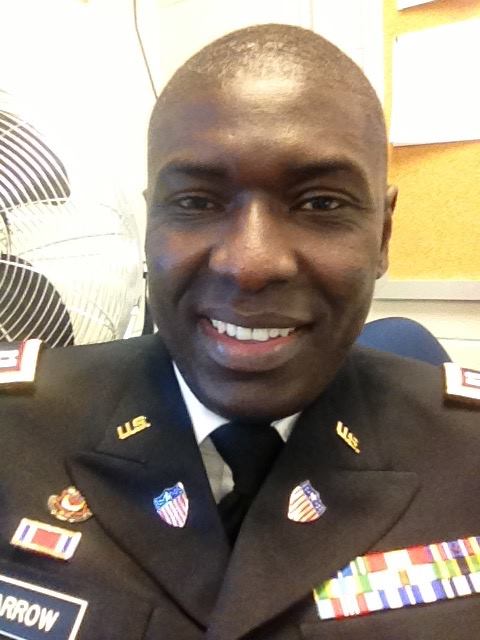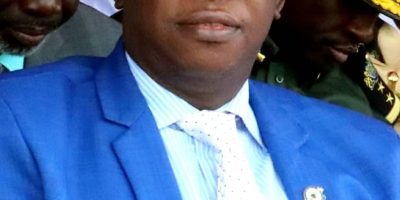
The author, Alagie Saidy-Barrow
by Alagie Saidy Barrow
Even for those of us that do not subscribe to religious narratives on the beginning of humans, we have all heard about the story of Adam and Eve or Adama (not your president; I mean the original Adama), and Hawa or Awa or Awa Yombeh or whatever you call them. The story goes that they were in the most ideal of places and were told to partake off all the trees except one enticing “apple” tree. Somehow, the serpent who was chilling nearby convinced Awa Yombeh to eat off that forbidden tree and she gave some of it to Adam as well. When questioned by God, Adam blamed Eve and also kinda sorta blamed God Himself by saying something along the lines of “The woman you gave me made me do it.” Eve in turn blamed the serpent whom she blamed for making her eat the apple! I guess the serpent would have blamed someone if it too was asked why he made Eve eat from that tree. There is much more to the story but my point is to show our tendency to shift blame elsewhere or simply deny if there is no one else to blame. All normal people have some desire to maintain a good image of ourselves.
The accused often hates to take responsibility for their transgressions and always finds a way to shift blame, partially accept or deny the accusations. The denial is borne out of a desire to maintain a good image of ourselves and always present ourselves as law-abiding citizens who are respectful of whatever dominant ideals, values, mores or traditions (social contracts) our society subscribes to. And so if we engage in any behavior that contravenes these social contracts, the accused’s first instinct is to plead innocence, partially deny or shift blame to someone else or something else. It would have been so cool if we can all just say “God made me do it” because that will absolve us off any responsibility when we beat up our wife or steal from poor people. People tend to be generally more understanding if you can say “God made me do it” and they believe that to be the truth. Unfortunately for us, God gave us choices in everything we do. So God made me do it does not always fly. That notwithstanding, how many times do you hear our folks say “Aketah lang nyenow letti dorong…” akin to “ndohgali Yalla la rek.” Unlike Eve, the serpent is not around for us to blame so we look for another entity to blame. But since blaming God for our transgressions is an abomination, the next best thing is to just shift blame elsewhere or deny the accusation.
Deny, deny, deny, especially if there are no witnesses to our transgressions. But even where there are witnesses, it comes down to their word against ours and so we continue to deny. Sometimes, we rehearse our denial to ourselves so much so that we actually convince ourselves that our version of events is the truth. But what is the truth? And what is a lie? How many times have you heard someone complain that “so and so lied to the TRRC”? I remember some individuals taking serious umbrage at how a particular narrative portrayed them or how a particular story was explained by others. They scream “he or she is lying; I was there and it did not happen that way.” In their mind, their version of events is the truth and the other’s version is a lie. But is the truth always that clear cut? Does any distortion of an event constitute a lie if someone else remembers it differently? I am not saying people do not deliberately lie or twist narratives to fit the image they want to portray. People do that all the time. Remember, we all want to be seen in the best of lights. But the truth is not always necessarily what happened; it is a recollection of one’s perception of what happened. These perceptions are mired in biases and other predispositions. So what one may consider the truth may not necessarily jive with how another person remembers the same event and they too have their version of their truth.
From time immemorial, people have been fascinated with seeking the truth because people’s understanding and memory of an event is not always the same. And believe it or not but PEOPLE LIE! It is important to note that no matter how vehement a denial, it does not constitute the truth of what happened or what didn’t happen. While denying does not always mean guilt, you should always expect that anyone accused of anything will either justify it, blame it on someone else, deny aspects of it that pose the biggest threat to them, deny it all completely and on very rare occasions, accept the truth of the accusation. Acceptance of an accusation is counterbalanced against what the accused stands to lose if they accept responsibility. The more they stand to lose, the more vehement the denial.
But getting to the truth is not always cut and dry. The road to what resembles the truth is littered with deception, self-protection, memory failure, perception etc. So when someone swears that they will say nothing but the truth, it is their version of the truth; not necessarily someone else’s. Their truth will be affected by their biases, predispositions and their filters and you too will have your own biases your predispositions and your filters in your version of events. Somewhere in between your version and that of another resides the truth. Getting as close to the truth as possible requires more than just listening to both versions. (To be continued).




Ma sha Allah great and thanks for sharing